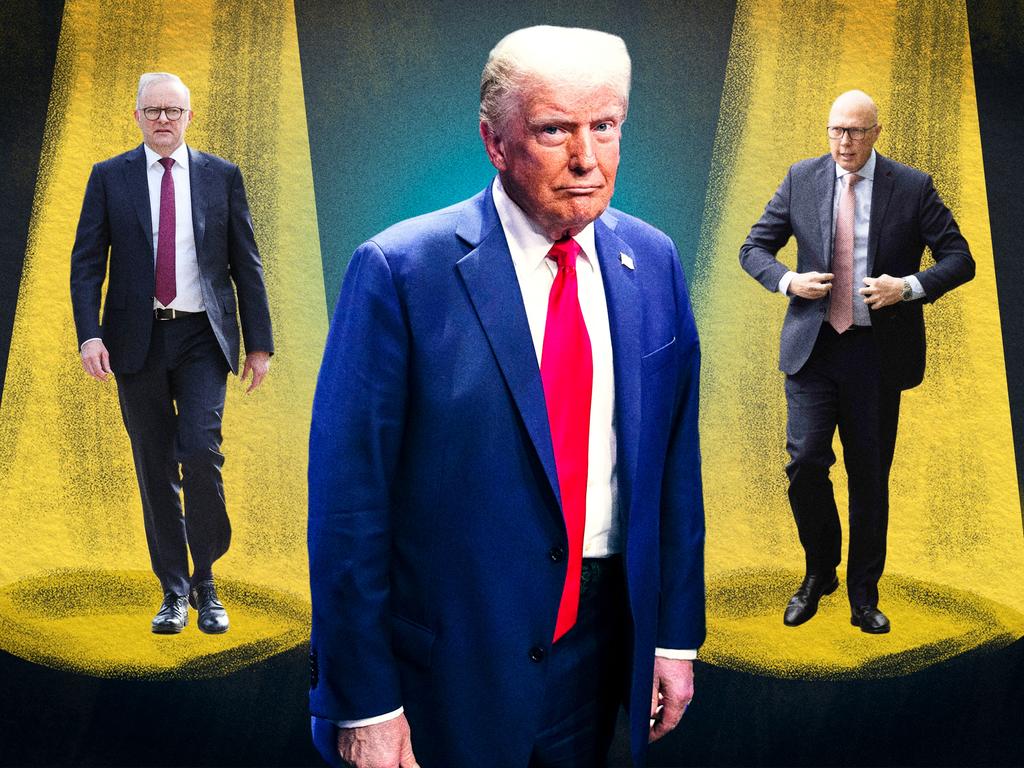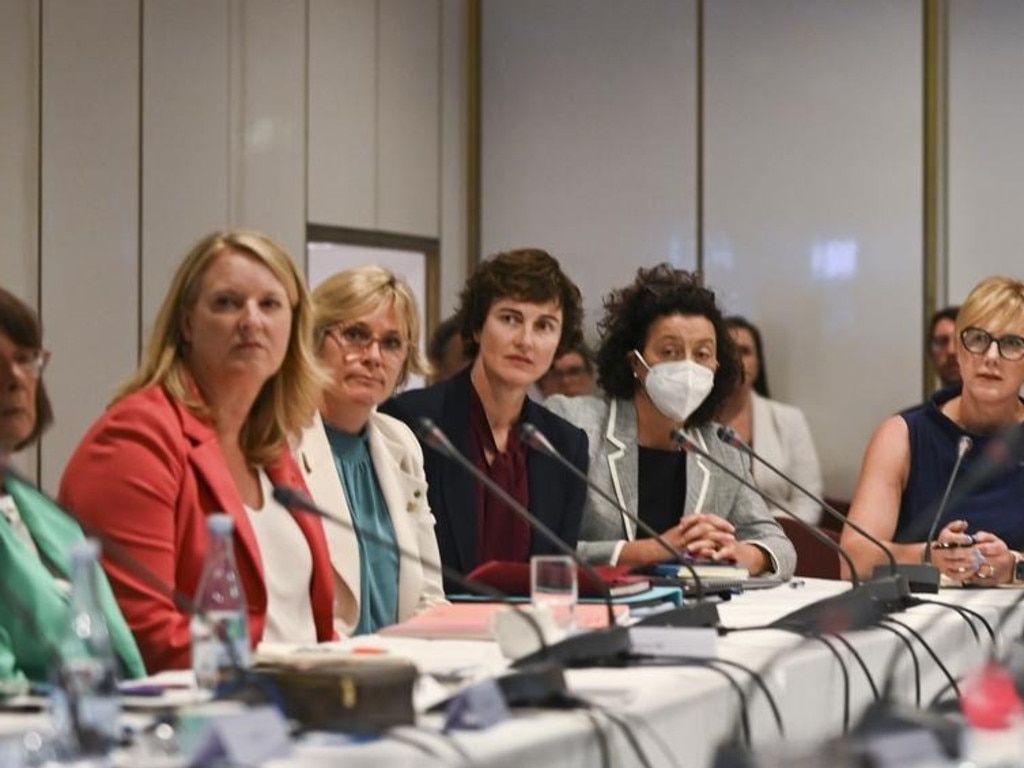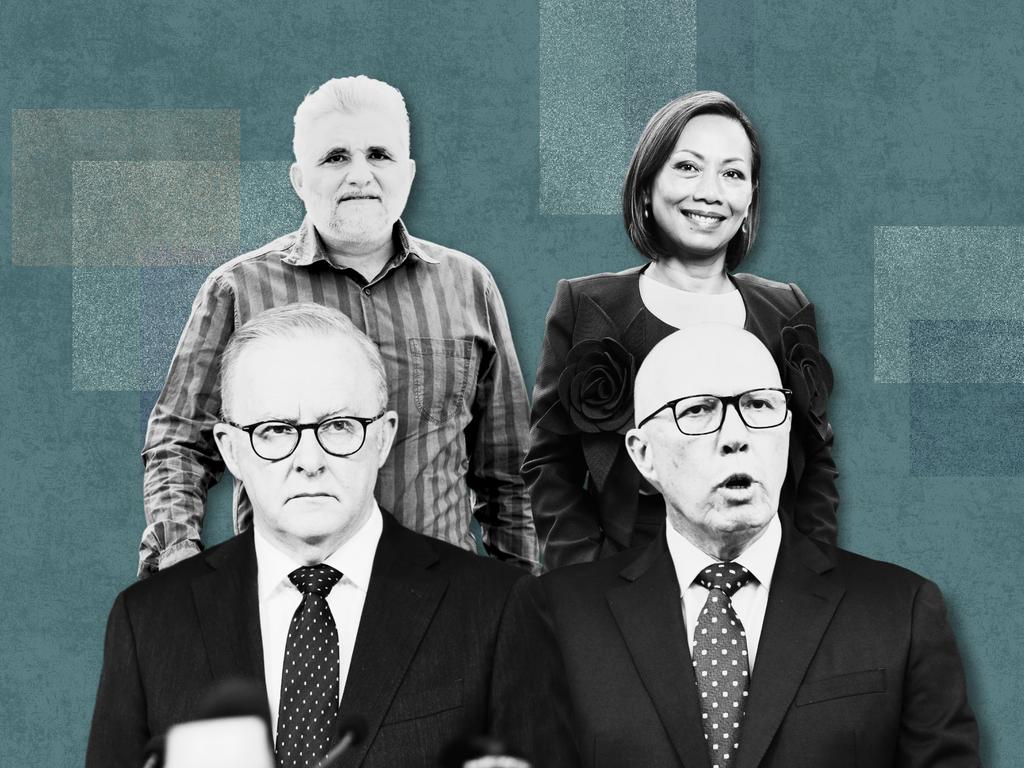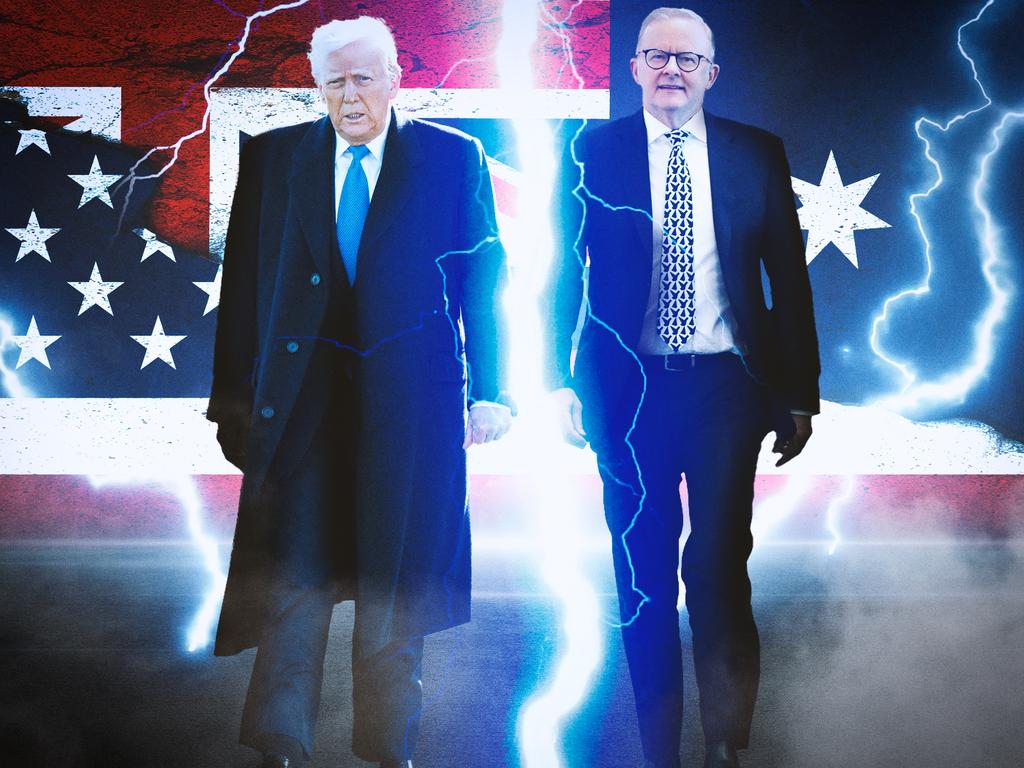As the election clock ticks, Peter Dutton is caught in a dilemma
The Liberal Party’s values – economic and cultural – have been under aggressive assault since 2022 from the Labor-Greens-teal progressive movement. This is a battle, at some point, the Liberals must confront.
As election 2025 enters the home stretch Peter Dutton is caught in a dilemma – the Australian people, disillusioned with the Albanese government, want a change but the public is unsure of the change it wants and is unconvinced about the changes proposed by the Coalition.
The election remains open but national polls point to a minority Labor government. Yet the contest is set to vary markedly seat by seat with different cross-currents and outcomes across the states. The election may swing on a pivotal question: has Dutton done enough? Has Dutton injected the Liberals with a strong enough brand to persuade a cynical electorate to dump a government it dislikes?

Here is a footnote to election 2025. Two years ago John Howard and Tony Abbott publicly warned the Coalition to prioritise an ambitious policy agenda to combat the Albanese government, to instigate a platform renewal and to draw fresh ideas from networks outside the party.
In April 2023, Howard told this column: “I think we have to avoid the error of just waiting and hoping for Anthony Albanese to fall over. I am very much in favour of a policy review. The Liberal Party should not pretend things will naturally come back without a lot of hard work. We must go back to tax reform.”

Abbott went further and, in an appeal shared by Liberal shadow minister Dan Tehan, said the spirit of John Hewson’s Fightback agenda – but not its specifics – was needed to embody the boldness for a party rethink during the current parliamentary term.
Former Liberal federal director and cabinet minister Andrew Robb reinforced the argument, saying: “I think the high priority for Peter Dutton becomes a major policy review to update our agenda. That means as time goes by and the Albanese government faces more difficulty, the Liberal Party has a set of strong, developed policies to put before the people.”
Tehan told Inquirer the Liberals needed a “modern manifesto”. He wanted a policy revamp that looked outside the party, that drew on “the best and brightest minds on the centre-right of politics” and that developed five priorities – lower taxes, higher productivity, smaller government, national interest immigration and home ownership.
Howard has previously said the “single largest failure of the Liberals” at the 2022 election was the absence of “a clear policy manifesto for the future”. Scott Morrison, unsurprisingly, rejected that critique. But it raises a stark question: is the 2022 mistake being repeated at the 2025 election?
Interviewed at the time in 2023, Dutton told the author he rejected any “small target” strategy and promised a bold policy agenda for the Liberals. Dutton’s instinct is to be bold, but he is trapped in the vortex of contemporary politics that dictates caution. That’s how Albanese won in 2022.

There is much caution in Dutton’s 2025 campaign. Sure, Dutton won on the voice and he went bold big time on nuclear power, but neither has defined this term for the Liberals.
A former Liberal adviser and director of polling agency RedBridge Group, Tony Barry, told Inquirer: “There are two things you need to do from opposition to win. First, you need to create a mood for change, and Peter Dutton won that debate, he won it a long time ago. But, second, you need to persuade the electorate – you must satisfy the public – that you are worth the risk in changing the government.

“The Opposition ticked the first box but didn’t tick the second box. It missed out because it hasn’t got the policy ideas out there. The fact is people want change, but they don’t see the change they want in the Opposition. Its job is to persuade people that voting for change is worth the risk.
“When people are asked if they think their standard of living will be better or worse in five years’ time, 41 per cent in our last poll said worse. That’s an entrenched pessimism about the future. People are looking for hope but neither side is really offering hope. They are offering piecemeal, unconnected policies. There aren’t big ideas to inspire people from either side.
“People will happily take energy rebate payments but they don’t think that will fix the energy crisis, just as they will take an extra 70c a day off their tax or 25c off their fuel bill without thinking these things are the answers.”

Cost-of-living angst was always the dominant election issue. And Dutton from the start has run a tight cost-of-living agenda, straight from the focus groups and polls, designed to uphold fiscal responsibility but win on public angst about falling living standards. But, if the Coalition finishes with a disappointing result, that tactic will loom as a miscalculation.
A similar point was made by Liberal backer and Institute of Public Affairs former executive director John Roskam, who argued the Liberals had dodged the internal debate needed to sort out their policy beliefs after the 2022 devastating defeat. Roskam told Inquirer: “The Coalition has suffered from a false sense of security. They believed the cost-of-living crisis was, of itself, a sufficient reason for people to change their vote. It’s not. The Coalition hasn’t adequately explained what it would do differently from Labor.
“The priority that Peter Dutton placed on maintaining internal unity meant there was no contest of ideas within the party. The view of some of the more thoughtful Liberal MPs is that in recent years the federal parliamentary Liberal Party has been an ‘intellectual and policy wilderness’.
“The defeat of the voice referendum was a victory the Coalition has been scared to take advantage of. The Coalition has ignored the almost 40 per cent of Labor voters who voted No. This shows the Coalition’s failure to appreciate the political and cultural changes taking place in the country.”
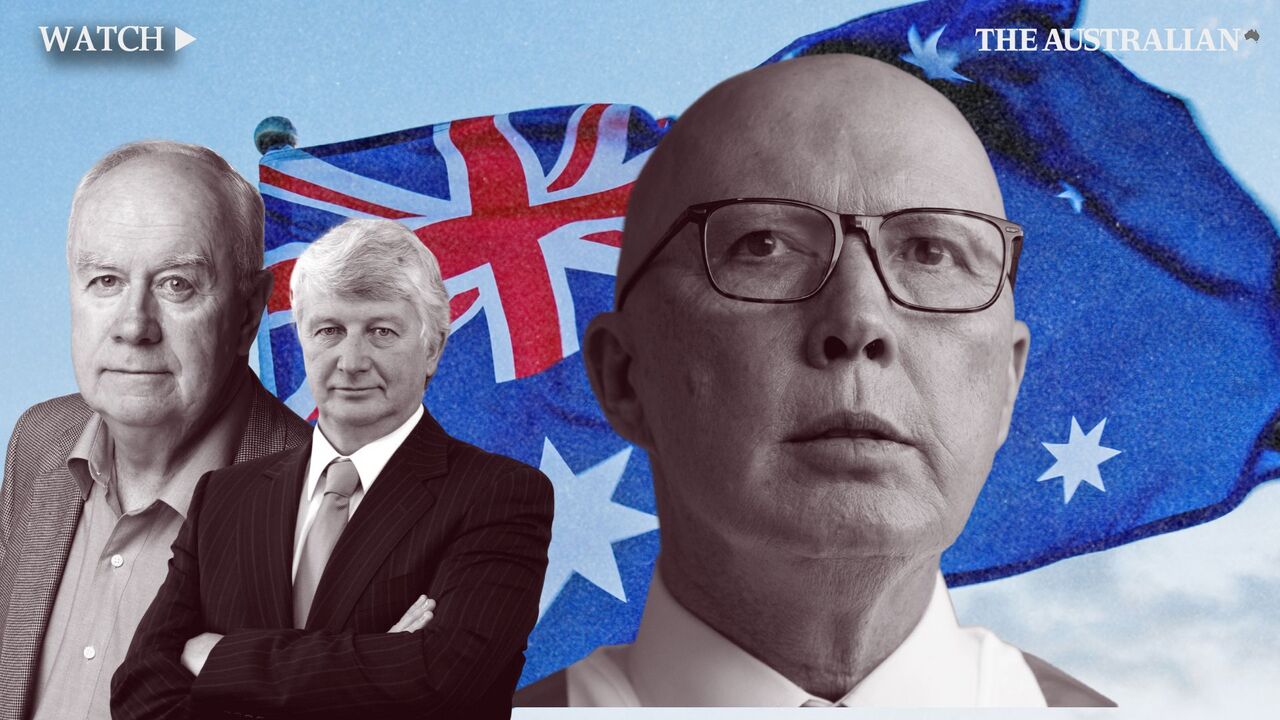
In his exclusive interview with The Australian this week, Dutton rejected this type of critique: “I’ve seen, you know, even esteemed journalists write this, but we have been in a policy formulation process for three years.
“One of the things that Tony Abbott instilled in us, and I’d never forgotten, was to make sure you work on policy. From day one we’ve had a shadow expenditure review committee established, shadows have been required to bring through countless policies. They’ve been backwards and forwards to the parliamentary budget office in different iterations and, ultimately, we will have a better bottom line than the government and we will always be better economic managers.”

Yet there is no gainsaying that too many Liberal policies were issued too late in the day and the Coalition’s policy agenda lacked firepower. Many MPs recognise this. Tony Barry identifies the flaw: “There were never baseball bats out for Albanese. There was public disappointment with him, people thought Albanese was pretty hopeless, it’s a bit like a work colleague, nice guy, just hopeless, but you’re not going to sack him.
“The mood about Albanese was very different to Scott Morrison in 2022 when the sentiment was we just can’t stand him.”
Dutton needed to add value to the Coalition cost-of-living push. Given that he inherited a divided, demoralised party after its 2022 election defeat, unsure of its beliefs and under assault from the left and right, Dutton’s caution was a natural reaction.
The upshot, however, is that he entered the campaign looking underdone on policy and short on vision, shunning tax and industrial relations reform, avoiding culture war issues, talking up geo-strategic dangers but still not releasing his defence budget policy, preaching a better budget bottom line but devoid of detail and weak on an economic-growth and productivity-enhancing agenda.
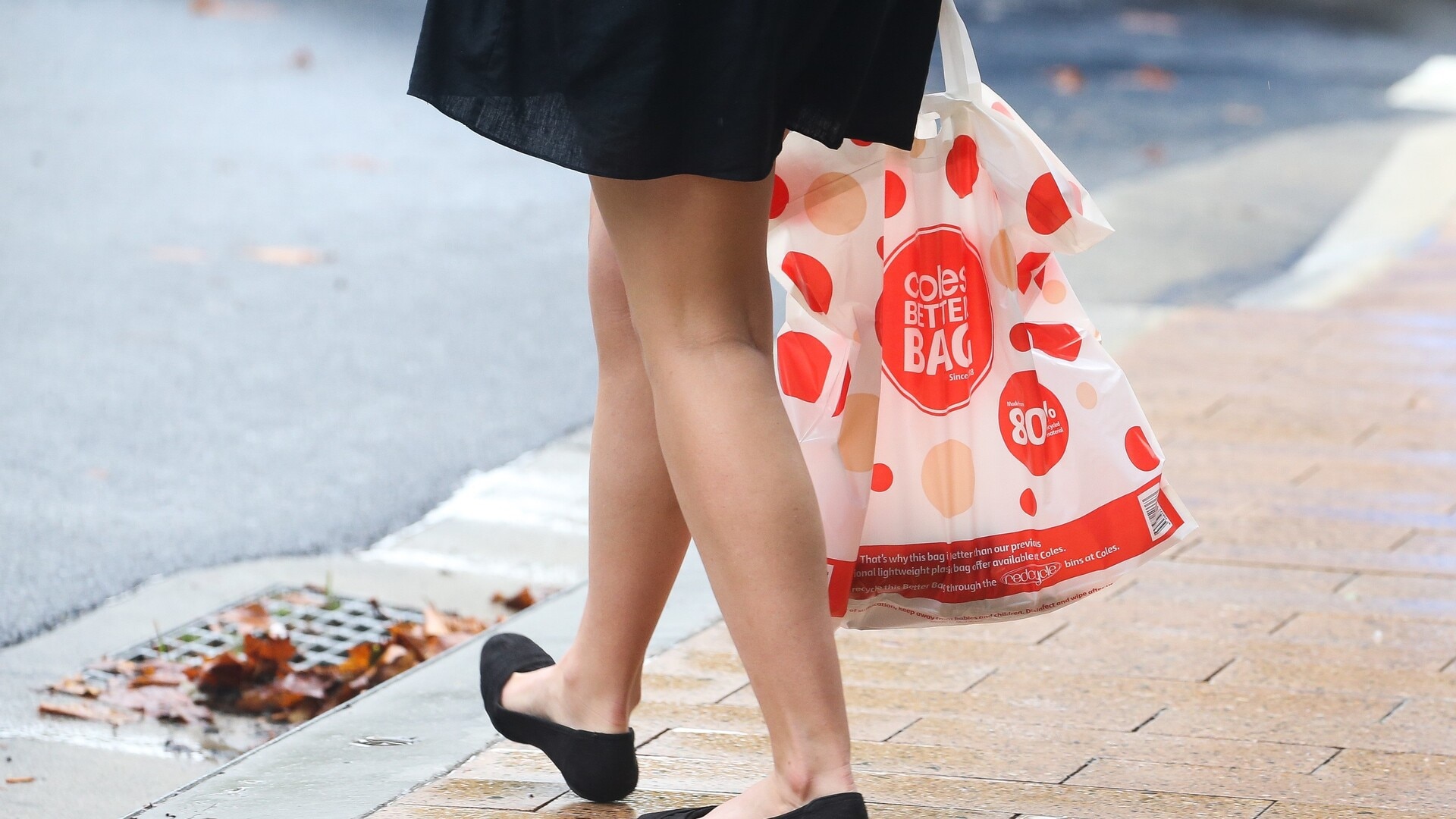
But in his Wednesday interview with The Australian, Dutton broke out – saying his “aspiration” as prime minister was to introduce the decisive reform of indexation of the personal income tax scale to purge bracket creep, affirming he wanted to achieve this “as quickly as we can”. Dutton attacked bracket creep, saying it “stifles productivity and entrepreneurship and hard work”, but there was a proviso – the reform must await the delivery of spending constraints to ensure the budget could afford it.
Dutton said tax indexation was not a pledge at this election but it was an aspiration he intended to honour as prime minister. He invoked the Howard-Costello model. After his 1996 election, Howard with Peter Costello cracked down on deficits and debt and then devised a major GST-led tax reform they took to the subsequent election in 1998.

It was a touch of Dutton unleashed. Often Dutton unleashed can be a negative. But this was Dutton embracing the big tax reform that prominent economists had urged him to accept, given widespread frustration about the paucity of the Coalition’s economic reform election program.
There are four points to make about this event. Dutton did the right thing – but should have done it earlier as an agreed, endorsed, Coalition policy. It has the potential to be reforming and popular, a rare double these days for any policy. It offers a dramatic break and differentiation from Labor since the government rejects the policy. And it merely confirms the Coalition’s mistake in opposing Labor’s modest income tax cuts in the budget, with both Albanese and Jim Chalmers saying Dutton couldn’t be taken seriously offering “aspirational” tax cuts when he was rejecting actual tax cuts. Sound argument.
It also had the effect of distracting from Dutton’s ongoing core tactic – his focus on cost of living as exemplified again in the Wednesday night ABC leaders’ debate. The way Dutton began and finished the debate showed his message discipline. “People have faced an existential cost-of-living crisis,” he said. “It’s been obvious to me that people don’t feel better off.
“People have seen food prices go up by 30 per cent, their mortgages have gone up on 12 occasions. And our plan is to get the country back on track.”

Albanese’s most difficult moment in the debate came when David Speers repeatedly pressed him on when power bills would come down.
Embarrassed by his 2022 campaign broken promise – that bills would be reduced by $275 – Albanese deflected and dodged. He wouldn’t answer. But guess what? He was right not to answer because bills won’t be coming down.
The greatest delusion perpetrated in our politics for years has been the claim that the challenging energy transition can be delivered without consumers facing sustained higher energy prices. It can’t. Any politician claiming the mantle of honesty should concede the scale of Australia’s energy transition will come only with higher prices. There’s a cost in moving to clean energy. Labor’s fraudulent mantra that “renewables are the cheapest form of energy” is designed to deceive because the total system’s cost are higher.

So far, the luck in the campaign has gone to Albanese. It seems that being forced to delay the election from April 12 to May 3 and bring down a budget has helped Labor. It created a sense of Coalition drift. The Trump-induced global shocks and sharemarket crisis have helped Labor because crisis typically favours incumbents. It makes voters warier about change. Finally, the delay exposed the lack of political ammunition in the Coalition agenda, a reality that forced Dutton’s responses. The polls revealed a trend to Labor.
Follow the narrative: in his budget reply Dutton unveiled his 25c a litre cut in the fuel excise, a one-off discount lasting 12 months, with a household having two cars expected to save $1200 a year. It had hip-pocket clout.
He foreshadowed Labor’s gas policy based on an east coast gas reserve, diverting gas from exports to the domestic market, aiming to cut residential gas bills by 7 per cent according to the Coalition.
The gas policy came far too late. But was its design workable? Doubts have arisen as to whether the proposal is constitutional since it involves a cost (think a tax) on surplus LNG to promote diversion to the domestic market while federal taxes cannot be discriminatory between states. At the same time Dutton, in a strange decision, opposed and promised to repeal Labor’s modest budget tax cut to every taxpayer by cutting the lowest personal rate from 16 per cent to 14 per cent, inevitably undermining the Coalition’s credentials as the low tax party.
In his policy launch last Sunday, Dutton went for populist audacity with his proposal for tax deductions of mortgage interest payments – the policy applies to first-home buyers for the first $650,000 of the mortgage and applies to individuals with an income up to $175,000 and for couples up to $250,000 income. There is no limit on the mortgage size or house price. This is a dramatic economic departure for the Liberals. Neither Peter Costello nor Josh Frydenberg would have backed this.

It is economically flawed using the tax system to subsidise personal consumption in the form of a home. It will fuel demand, boost house prices and benefits the better-off. But it delivers substantial populist benefits, with the Coalition estimating a benefit of $12,000 a year for someone on a $120,000 salary and a $650,000 mortgage.
The proposal verifies the above comments from former Liberal leaders: the party’s job was to conduct a proper review this term to sort how Liberals beliefs would translate into reformist policy.
The problem was identified in a 2023 Inquirer interview with RedBridge research director Simon Welsh, who said: “The challenge for the Liberals is marrying ideology to policy and politics. Government has now become such a big part of the economic aspiration story. People keep looking to government. They say, we don’t want an American-style society, we don’t want an American-style economy, no laissez-faire, no hands-off US style.”
How does this fit with the Liberal faith in small government, lower tax, deregulation, cutting red and green tape, market forces and putting an onus on individual responsibility?
Dutton has long recognised the party’s flaw. Indeed, he told the author during the 2023 interview that from the time Abbott was deposed in 2015 “the Liberal Party hasn’t stood for any substantial policy formulation”, Covid and AUKUS aside.

Dutton’s instinct has always been to reject any suggestion the Liberals should be more like Labor, a rebuff to many party progressives. In the same 2023 interview, he said: “We won’t be a small target at the next election. We will have a bold policy offering that reflects our values.” Yet the reality is that Dutton, through tactical necessity, has felt forced to align with many of Labor’s policies or not challenge other policies.
The Liberal Party’s values – economic and cultural – have been under aggressive assault since 2022 from the Labor-Greens-teal progressive movement. This is a battle, at some point, the Liberals must confront. Waging that battle and persuading the public won’t be easy.
Roskam said: “The Liberal Party lacks a sophisticated understanding of the now-ascendant progressive-left critique of modern Australia and its history. It is a critique that strikes at the heart of the country’s social cohesion and which the Liberals will, eventually, have no choice but to confront.”


